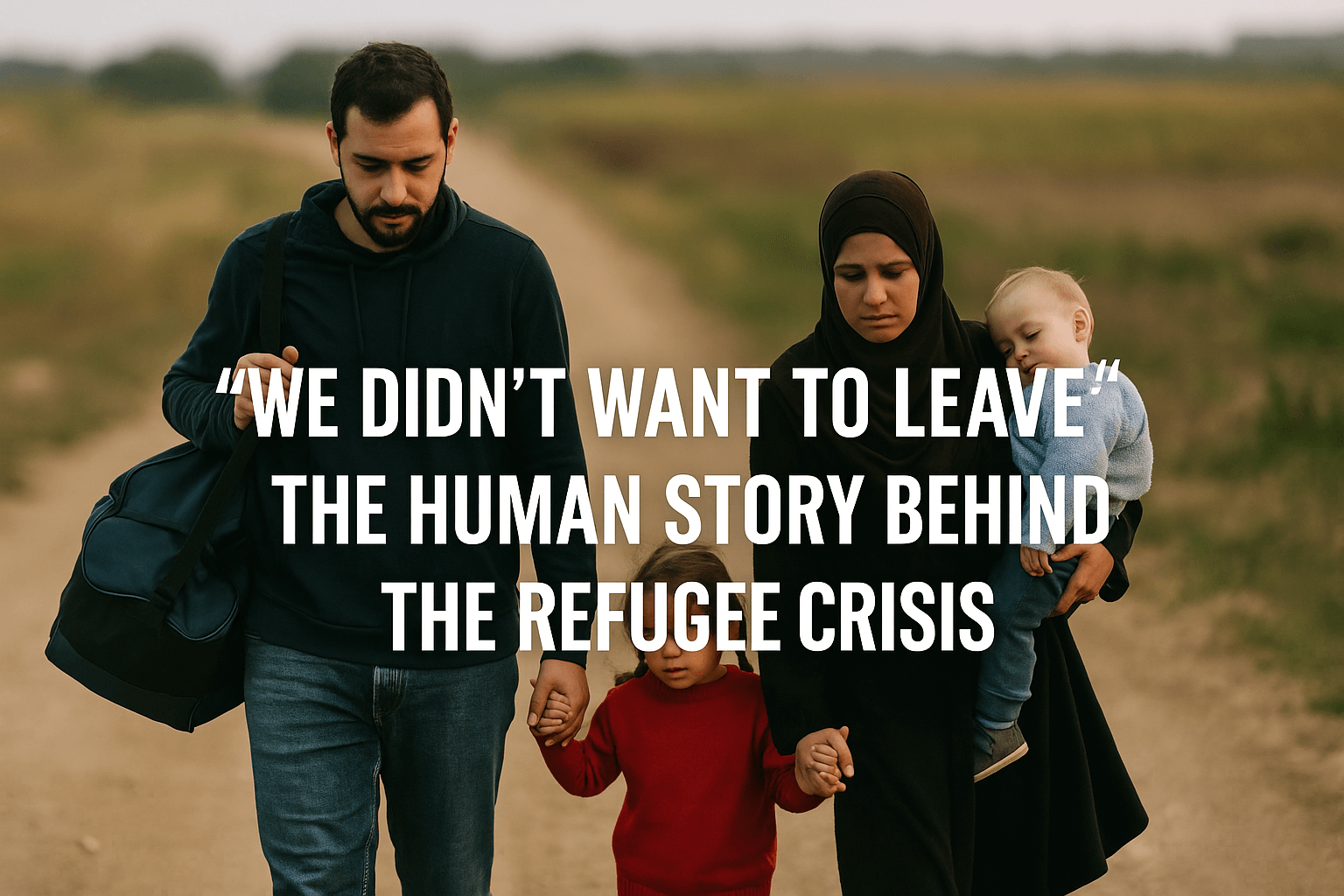🌍 “We Didn’t Want to Leave, We Had To” — The Human Face of the Refugee Crisis
Imagine waking up to the sound of bombs. The sky dark with smoke, your home turned to rubble, your school no longer standing. You grab your child’s hand, pack what little you can carry, and start walking. Not for a vacation. Not for a new job. But because staying means dying.
This is the daily reality for millions of people around the world. And yet, we call it “the refugee crisis”—as if it’s just numbers on a screen or headlines in passing. But behind every number is a name, a face, a family torn apart.
🧭 What Is the Refugee Crisis Really About?
It’s not about people “illegally” crossing borders. It’s about people running from war, hunger, persecution, and hopelessness—and trying to run toward something safer, something better.
Right now, more than 114 million people worldwide have been forcibly displaced from their homes. Not because they wanted to move. But because they had no choice.
They are mothers leaving behind husbands. Children crossing seas in rubber boats. Teenagers growing up in refugee camps instead of classrooms. The crisis isn’t just geopolitical—it’s deeply personal.
💔 How Does It Affect People?
Let’s look beyond the stats for a second.
-
- A Syrian father who once owned a bakery now begs on the streets of Lebanon to feed his kids.
-
- A Ukrainian child who loved football now sleeps in a subway station, using a backpack as a pillow.
-
- An Afghan girl, full of dreams, now watches her future shrink inside a tent in Pakistan.
These people are not numbers. They are us—only born in different circumstances.
🌍 What About the Countries They Flee To?
Some countries have opened their doors generously—others have closed them shut. Either way, the impact is real.
-
- Lebanon now hosts over 1.5 million Syrian refugees—while struggling with its own economic collapse.
-
- Turkey has taken in over 3.6 million people. That’s like adding the population of an entire city overnight.
-
- Poland welcomed millions of Ukrainians, offering shelter, jobs, even school spots for their children.
But even the kindest hearts get tired. Tensions rise. Resources run thin. Locals worry about jobs, housing, and cultural shifts. This crisis doesn’t just test the resilience of refugees—it tests the humanity of the host countries.
🌪️ Why Is This Happening?
Because wars rage on. Because economies crash. Because politics fail. Because climate change is drying rivers, flooding homes, and stealing futures.
From Syria to Ukraine, Venezuela to Sudan, Afghanistan to Myanmar, people are being uprooted by things far beyond their control.
And most of them don’t even make it far. Nearly 70% stay in neighboring countries, often in poverty. Only a small fraction make it to Western nations.
🕊️ What Can We Do?
The refugee crisis might feel too big to solve—but every act of empathy matters.
-
- Learn and share their stories. Change begins with understanding.
-
- Support organizations that provide food, shelter, and education.
-
- Push for fair policies—so borders don’t become walls against compassion.
-
- Speak up. Silence fuels indifference.
💬 A Final Word
We often ask, “Why are they coming here?”
But the real question is, “What would I do if I were in their shoes?”
Being a refugee isn’t an identity. It’s a situation. One no one chooses.
Let’s stop seeing them as strangers at our borders—and start seeing them as people, just like us, desperate to live, to hope, to belong.



